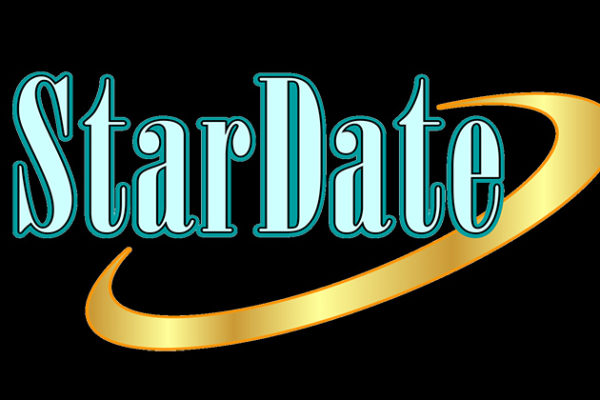AUSTIN, Texas — The longest running nationally aired science program is marking a major milestone. “StarDate” radio, produced by The University of Texas at Austin’s McDonald Observatory, celebrates 40 years on the nation’s airwaves. In its nearly 15,000 daily two-minute episodes, “StarDate” has brought skywatching and astronomy to millions of listeners across the United States. Today, it airs on about 400 radio affiliates, split evenly between public and commercial stations.
“McDonald Observatory is proud to have produced ‘StarDate’ for 40 years and to connect with the community of astronomy enthusiasts who follow the program,” said observatory director Taft Armandroff.
Each month, “StarDate” offers a balance of astronomy and space-science topics. About half of each month’s programs are related to skywatching: eclipses, meteor showers, planetary conjunctions, stars and constellations, and so on. Other topics relate to important anniversaries, recent scientific discoveries, Earth’s place in the cosmos and related topics that help place astronomy in a broader cultural perspective.
“StarDate” began as a telephone message service in 1977 and went on the air Oct. 1, 1978, in Austin as a daily radio program called “Have You Seen the Stars Tonight?” After receiving a grant from the National Science Foundation (NSF), the program began national distribution in 1978 under the name “StarDate,” with writer/producer Deborah Byrd and announcer Joel Block. When the NSF grant neared its end, McDonald Observatory hired Sandra Preston to market the program to radio stations. She later became an assistant director of the observatory, overseeing all public outreach programs until her retirement in 2016.
Byrd and Block left the show in 1991 to found the “Earth and Sky” radio series. Damond Benningfield, a science journalist, became the writer/producer, with Sandy Wood, a voice talent and radio personality, taking over narration duties. Both maintain those duties today. Tom Barnes, a McDonald Observatory research scientist, has been technical editor since 1991 as well, with Shayna Brown, owner of ChezBoom Audio in Austin, serving as audio engineer since 2002.
“It’s been quite a ride,” Benningfield said. “It’s just so much fun to be able to tell people what we’ve learned about the lights they see in the night sky, and about the really clever ways that scientists and engineers are devising to explore the universe. Astronomy has changed tremendously since ‘StarDate’ first went on the air, and it’s great to watch those changes and share them with our audience.”
In addition to the flagship radio program, StarDate magazine brings science and stargazing to thousands of subscribers every other month. StarDate Online contains information about astronomy and skywatching as well as a searchable database of radio scripts. Visitors can listen to past radio programs online or subscribe to the podcast, as well. StarDate also reaches tens of thousands of fans via social media.
“StarDate” radio spawned a sister program, the Spanish-language “Universo,” which aired from 1995 to 2010. The program also was translated into German for several years under the name “Sternzeit.”
Note to editors: Visit StarDate Online at http://stardate.org




